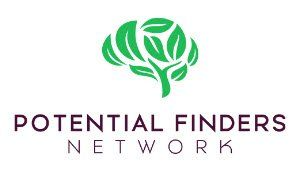By Search Hound
•
May 10, 2025
Attachment research gets big press these days. Oodles of books, blogs, podcasts, and talk in general revolve around this well-researched, robust field of human study. You may have some notions of how it all works, but just to be on the safe side, you can consider this post a mini-primer on the topic. In this article, we will look at how attachment develops and then spend the rest of the month looking at how to manage attachment issues as adults. First, a bit of needed background. Strategy or Style? Popular media being what it is, sometimes misinformation gets out there. Let’s clear at least some of that up here. When attachment is discussed in popular media, it is often referred to in terms of styles. However, there is a distinction between what develops in childhood and how we are affected as adults. Attachment, as a core way of connecting to other human beings through the lifespan, is a developmental science discovered and developed by John Bowlby, Mary Ainsworth, and Mary Main. What their research demonstrated is how children adapt to a variety of early life experiences. We will think of those adaptations as strategies that may follow us throughout their life. In contrast, attachment styles will refer to ways we relate to others as adults. This is a different set of research and terms. This article will focus on strategies while the subsequent blogs for the rest of the month will focus on styles. What a Strange Situation! In case you have ever wondered where the idea of the various attachment strategies/styles came from, one of the major contributors to the theory was the results of a research study that has now been reproduced tens of thousands of times all over the world: The Infant Strange Situation Study. In short, a parent/caregiver and their child, who have participated in extensive history interviews, are invited to a “Strange Situation.” This usually consists of a room with a one-way mirror with a table, chairs, toys, and a researcher, which is someone the child does not know before arrival. For the child, this is a strange situation indeed! Upon arrival, the parent accompanies the child into the new environment. After a few minutes, the parent leaves, then the stranger leaves, and the child is left alone in the room for a short time. After observing thousands of children in this study, the researchers noticed some interesting patterns that arose when the caregiver returned after leaving the child alone. These patterns appear to be highly durable, provide strong predictive value, and form the basis of the attachment strategies we will learn about shortly. Initially, three distinctive patterns emerged during the study: Secure, Avoidant, and Ambivalent (Or “Anxious” ) Attachment. Later, a fourth pattern was noticed and called Disorganized . Researchers now categorize the first three as Organized attachment. There is a “fifth” attachment category, as well…but I’ll let that stay a mystery for now – but here’s a bit of a spoiler: It’s really good news! Who’s My Mommy? When we hear the term Attachment Figure, we often assume we are talking about someone’s mother. Nope. Not necessarily. Also, not every person we have contact with is an attachment figure. So, what does the term mean? Attachment Figures generally have three main elements: 1). The relationship is long-term 2). There is a seeking of closeness (can be one-way or bi-directional) and 3). There is an increase in a sense of security when in the presence of this person. Examples may be parents, siblings, very close friends, and long-term romantic partners. For some, mentors and teachers can be attachment figures as well. Not all mentors. Not all teachers. Not all friends. Not all family members. Not all people. Sometimes, one or more of the three factors listed above hold true while the others do not, hence the different strategies to cope. The caregiver we spend the most time with as a child is often referred to as the primary attachment figure . Also, we can have different strategies with different attachment figures throughout our lives – because…pay attention to this…the strategy we choose is based on the style of the attachment figure! “What? My Attachment Is Not about Me?” It can be helpful to know one more pattern that emerged from the research. A given child’s attachment strategy can be predicted with amazing accuracy by learning about their parent/caregiver’s upbringing. This is important for two reasons (maybe more, but for this discussion, these two are enough). First, the strength of this predictive ability can become a prevention tool of sorts. In her work with attachment, Mary Main and her associates created something called the Adult Attachment Interview (AAI). This extensive questionnaire can be a helpful tool for people working both with a particular individual and their attachment and with their children (Please note: special training is required to use this tool correctly). Secondly, attachment is explained in terms of being secure or insecure. It is tempting to assume that insecure attachment comes from childhood abuse – but this is most definitely not a given. Many factors, not the least of which is the attachment figure’s upbringing, can contribute to a given person’s attachment and we do well to proceed slowly and non-judgmentally when taking client histories. The Attachment System If you know me at all, you know you’re bound to get a little brain action in my blogs! Here it is. Throughout the rest of the article and the month, we will be talking about a person’s Attachment System . This refers to several areas of the brain and body and it is important to note that this system will engage differently depending on a person’s particular attachment strategy. In brief: Sensory System : We first take in our surroundings via our five senses. We see, hear, smell, feel, and at times, taste our (primary) attachment figure Limbic System : For this discussion, we will highlight the amygdala, the hypothalamus, pituitary gland, and the adrenal gland. In short, this system is responsible for engaging the Defense Network , which results in the fight or flight sensations that occur when a person, through their sensory system, perceives danger. Polyvagal System : Again, for this discussion, we will refer to the Vagus Nerve (Or Tenth Cranial Nerve) that goes from our brain down into our lower abdomen and is responsible for enacting what is called the social engagement network . Including body language, proximity, and other relational features, this system contributes to our desire to move toward rather than away from someone. Prefrontal Cortex : This is the part of our brain that has some conscious awareness, helps with decision-making and learning, and other higher executive functions. This is the part of the system that helps us remember how we feel about our attachment figures. Because it is connected to other parts of our brain, a lot of what goes on here is non-conscious and implicit. This is important to remember. Alright! It’s finally time to get on to the nitty gritty. Let’s learn about each of the FIVE (yes, five) foundational attachment strategies. Secure/Organized Attachment: “I Want You” (vs I NEED/CLING to You for Survival) Let’s start by laying a secure foundation (pun intended). I know. I can’t help it. As infants, certain experiences are necessary for human beings to develop security. These have been coined the “Four S’s1” by Dr. Daniel J. Siegel in his book The Developing Mind (3rd Edition; 2020; Guilford Press). We must feel safe, seen, and soothed to be secure. In practice, when our caregivers make concerted efforts to be attentive, see us for who we are, showing respect and support for our uniqueness and variable states of being, and when they provide comfort and meet our needs on a regular basis, these 4-S criteria are met. Notice I said concerted and not consistent. Consistency is a noble aim, but it is a big ask and something no parent can…well, consistently provide. This inability is accommodated by working to repair any breaches. Unsurprisingly, secure attachment is the preferred attachment strategy and accounts for somewhere around 60 percent of the population in the United States. To keep this post to a reasonable length and help the reader compare elements of attachment quickly, each of the styles will focus on a few descriptive points, as follows. Key Attachment Feature : The Secure attachment figure is a Safe Harbor and a Launching Pad. Child feels safe, seen, and soothed as needed (Safe Harbor) and because of this, they are free to leave their attachment figure and explore the world (Launching Pad). Infant Strange : The child may become upset during the caregiver’s absence and will seek them out upon their return. Once soothed, they will return to exploration and play. Attachment system : Overall stable and active; Open Typical Presentation : A child (and then adult) in a secure attached relationship enjoys seeking out their attachment figure to connect, share joys & sorrows, and have fun. They will want to spend time together, but if and when that is not possible, they are not diminished and remain confident and stable on their own. Insecure/Organized - Avoidant Attachment: “Go Away!” This attachment strategy accounts for approximately 20 percent of the population in the US currently. Key Attachment Feature : Caregiver is perceived by the child to be largely unavailable to meet their needs. Child is not seen at all, soothed, nor emotionally safe. Infant Strange : When the parent leaves the room, the child may not react and, upon caregiver’s return, may make no visible moves to reconnect. Attachment system : Shut down/Inactive/Rigid Typical Presentation : The individual with this developed strategy often avoids creating deep connections with others and will often have the conscious belief they don’t need other people and/or can take care of their own needs. Non-consciously, however, they still desire rich relationships (as evidenced by newer research methods that monitor skin and heart responses). Insecure Organized - Ambivalent/Anxious Attachment: “Come Back!” This attachment strategy accounts for approximately 10 - 15 percent of the population currently. Key Attachment Feature : In this case, there are two possible key features. Caregivers may be highly anxious themselves. Child feels this and their own nervous system is activated. At other times, the parent may override or overwhelm the child’s inner world by imposing their own emotional state onto the child (such as assuming the child is lonely and picking them up too often). The child is not seen as an individual with their own mind and needs, is not soothed but activated, and is not emotionally safe. Infant Strange : These children become highly distressed when the caregiver leaves and will cling and, at times, be rather dramatic when they return. Attachment system : Excessively Engaged/Overactive/Chaotic Typical Presentation : Children with this strategy will be highly anxious, especially when separated from their primary attachment figure. They will often struggle with others, commonly labeled bossy or controlling. Insecure/Disorganized Attachment: “Go Away!!/Come Back!!” This attachment strategy accounts for approximately 5-10 percent of the US population currently. Key Attachment Feature : Child is terrified by the caregiver resulting in an unsolvable dilemma. The only one to whom a child can turn in distress is the cause of it. Child is not seen as their own separate individual with needs, not soothed, and not emotionally nor, at times, physically safe. Infant Strange : Child may or may not show distress when the caregiver leaves, but upon their return will have highly disorganized and/or bizarre reactions, such as multiple false-start movements toward/away from caregiver, screaming, running in circles, banging their heads, grabbing at their own skin and hair, etc. Attachment system : Vacillates between hypervigilant/overactive and shut down. Typical Presentation : People who develop this strategy will work hard to gain relationships with a variety of coy-to-charismatic and/or manipulative behaviors only to push away or act aggressively toward anyone who “gets too close.” This is often referred to as a “Push-pull” or “Come Here/Go Away” relationship dynamic. The “Fifth” Strategy - Earned Secure Attachment I hope seeing these in such a stark contrast gives you some clues into how the various strategies develop and present. I want also to make something loud and clear again: Insecure attachment styles need not develop from abuse. Though this is often the case, they can also occur with extended separation from important caregivers, accidents beyond the parent’s control, or other situations. A thorough history unfolding over time as the client becomes safe is warranted before drawing any conclusions. All the strategies mentioned above are a result of an individual’s upbringing from birth (or pre-birth) throughout childhood. There is a so-called “Fifth attachment category” of earned secure attachment that is not the result of childhood experiences. This is a direct method of creating attachment and usually involves a high (or at least higher) degree of intentionality and awareness and is usually facilitated by a therapist. This is the goal of much of the work of an attachment specialist and involves identifying and addressing faulty core beliefs, creating healthy support systems, and learning how to calm the central nervous system manually. People with this attachment strategy, for all intents and purposes, function like those with organized secure attachment from birth. The Power of NOW! Do you see yourself in one or more of the above descriptions? Are you different with different people? Don’t be surprised. That is how it works. I hope you are encouraged by the idea that you can achieve earned secure attachment. It’s going to be hard work – but it is truly worthy work. Spend some time pondering this information and then come back next Tuesday for our first Word of the Day blog of the month and continue to build a foundation of security, joy, and abundance in your life. Written by book author , blogger, & educational/motivational speaker, Hannah Smith, MA LMHC CGP. Certified Interpersonal Neurobiologist, Group Specialist & Founder of The Village Coaching Collective Project., LLC, Hannah provides cutting-edge holistic consultation, training, and a variety of innovative personal development services. Hannah’s passion is to see people reach their potential and find lasting, positive change. Visit www.PotentialFinders.com to learn more about what Hannah can do for you. Return often for tips, events & other helpful information. REFERENCES 1Siegel, Daniel J. (2020). The Developing Mind: How Relationships and the Brain Interact to Shape Who We Are. The Guilford Press, New York

















